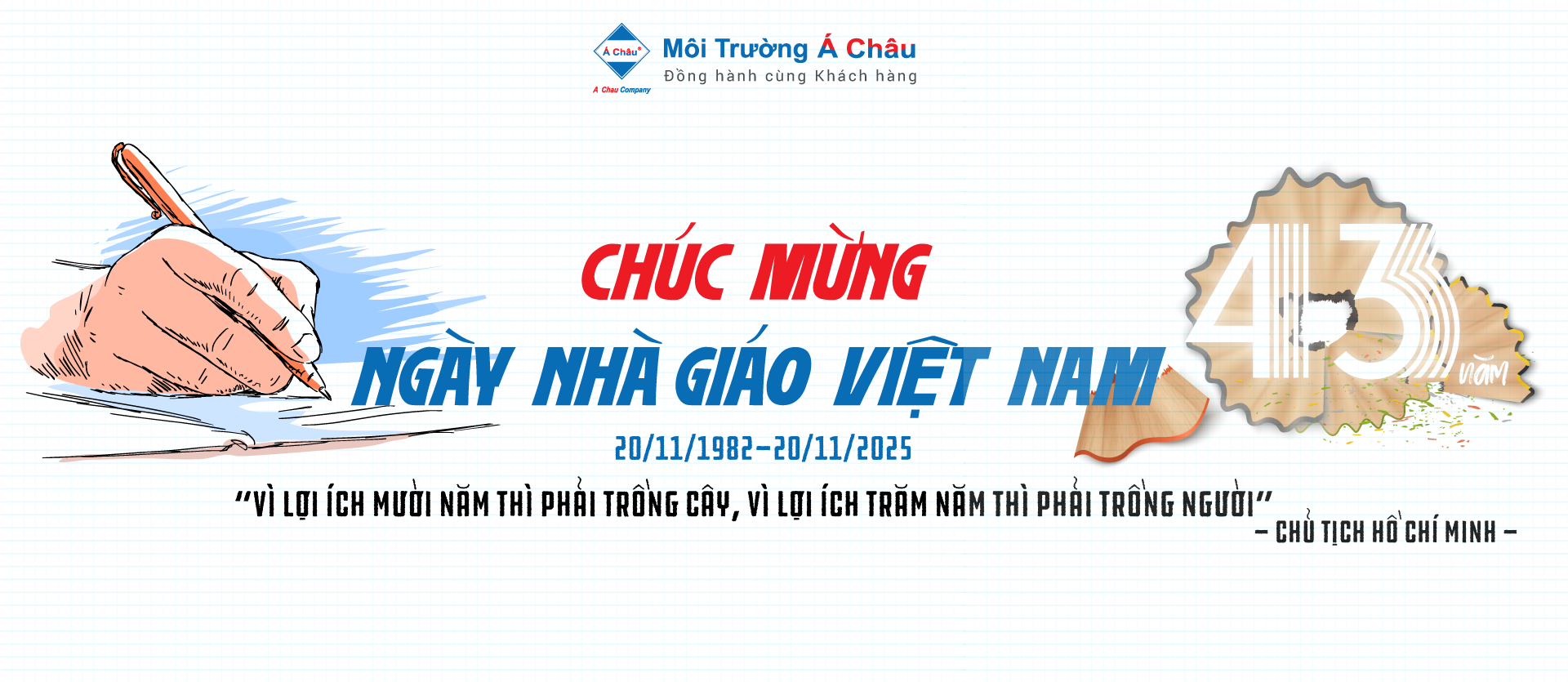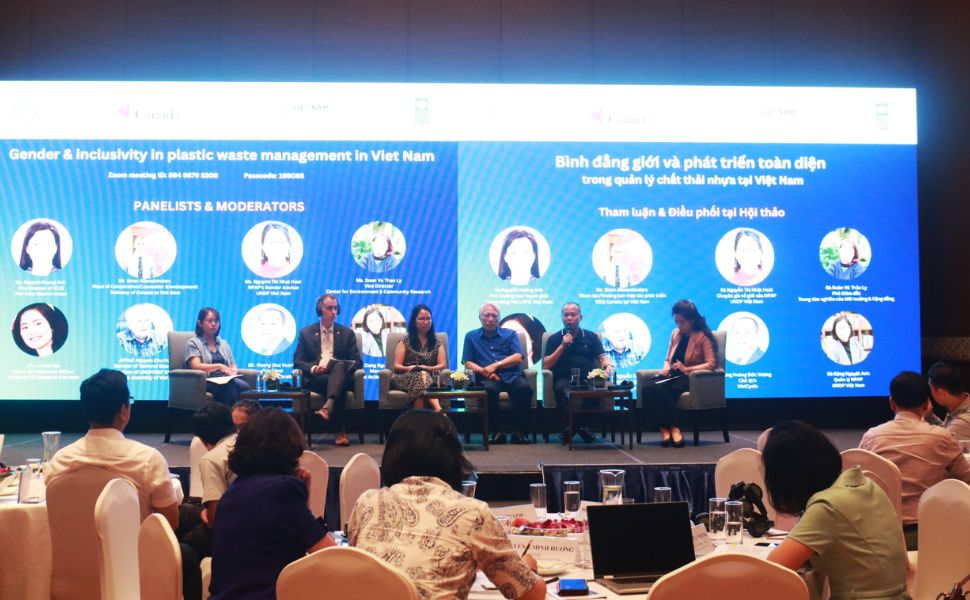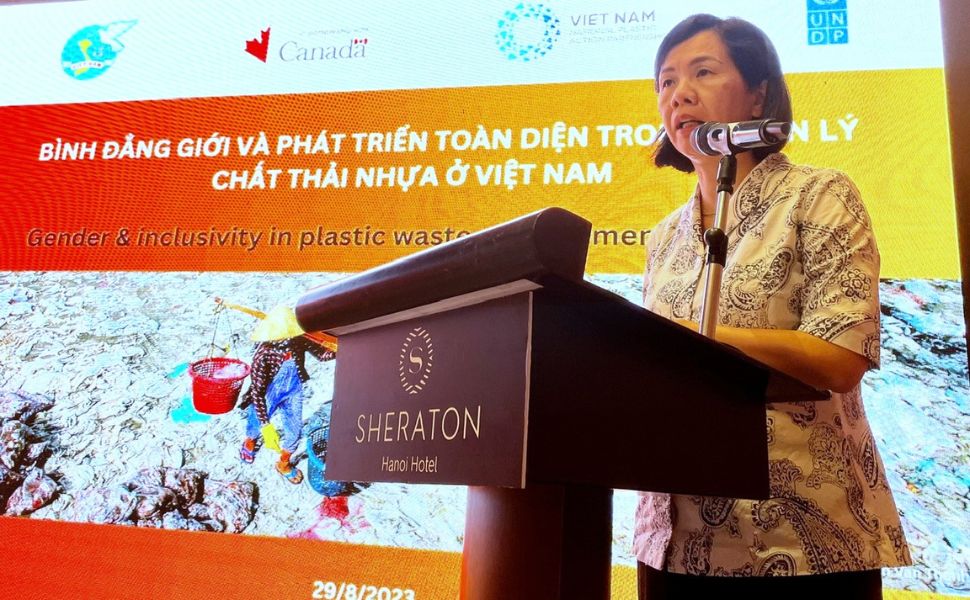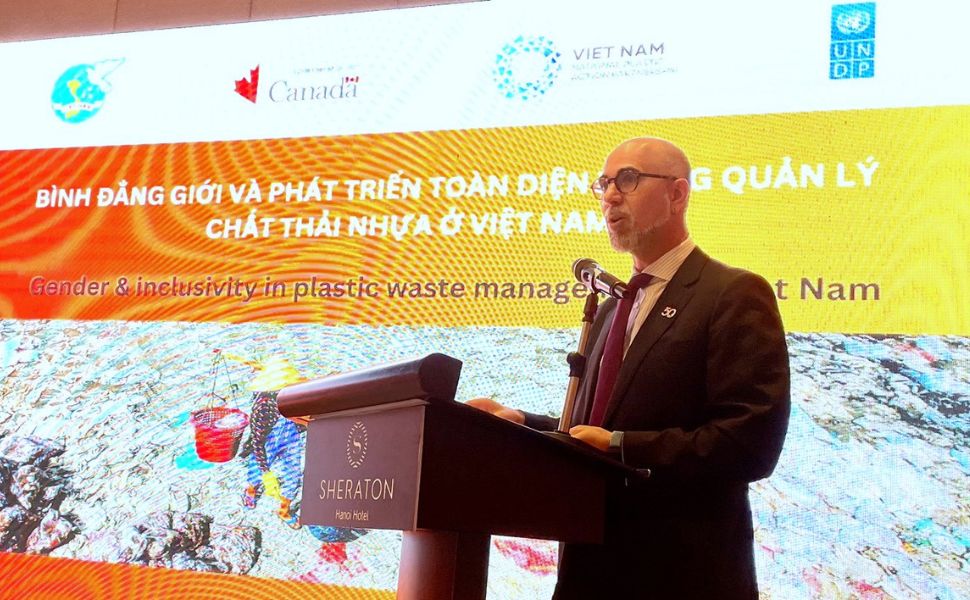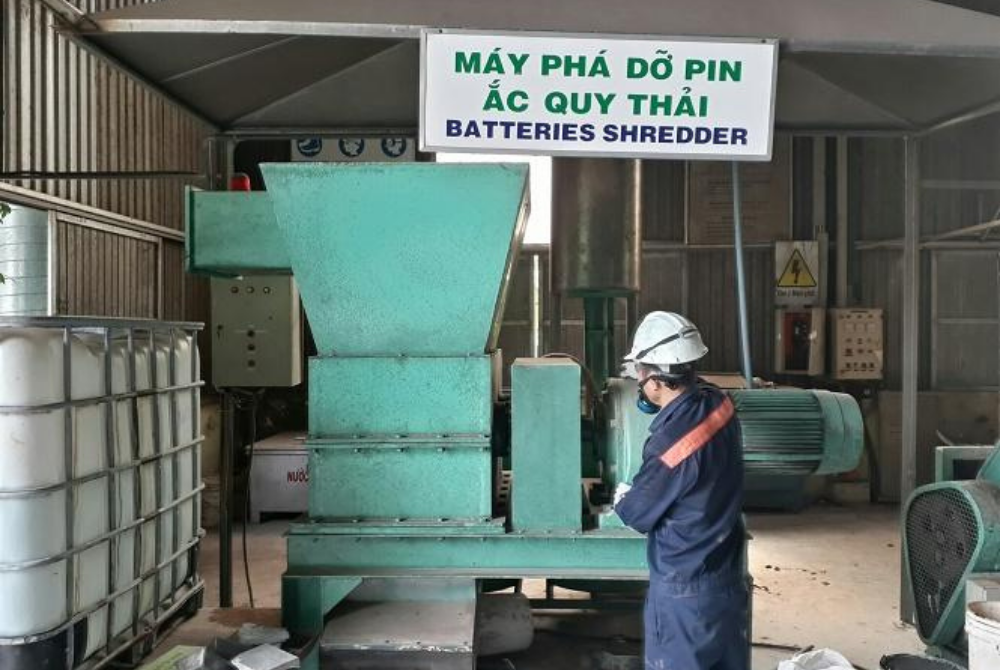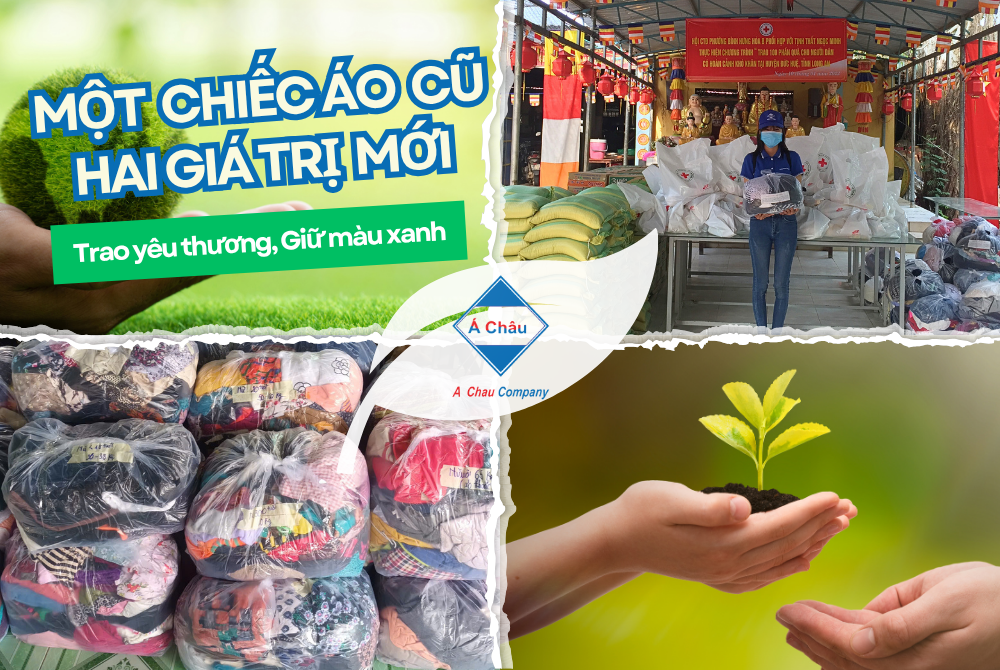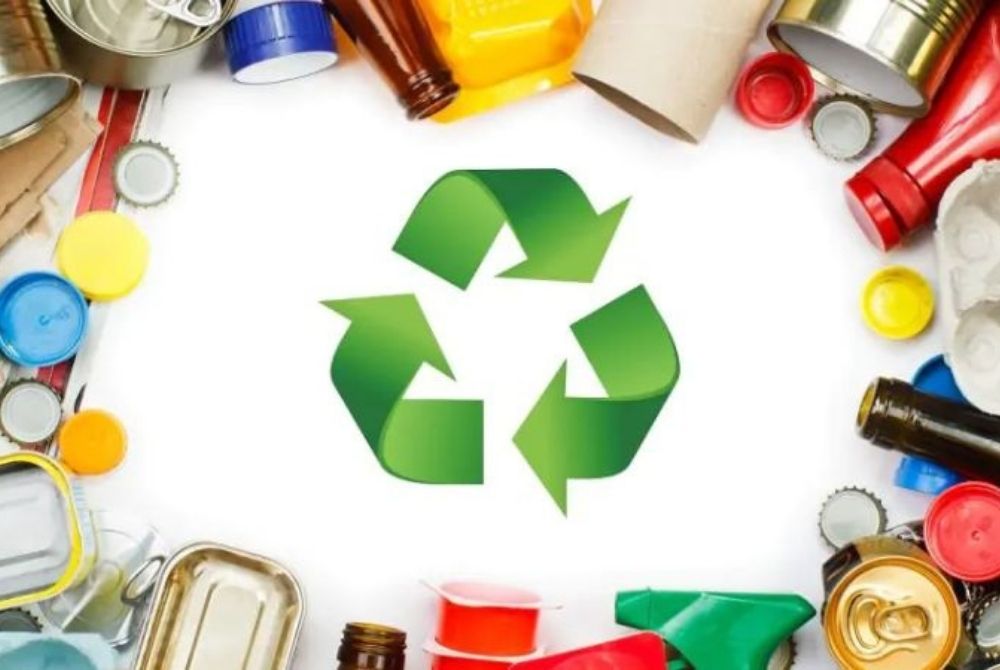In Vietnam, encourage gender equality in plastic waste management.
The Vietnam Women's Union (VWU) Central Committee hosted a seminar on gender equality and comprehensive development in plastic waste management on August 29th in Hanoi in collaboration with the Canadian Embassy in Vietnam and UNDP Vietnam.
The agenda shared the results of the National Plastic Action Partnership (NPAP) Gender Assessment Report on the Plastic Value Chain in Vietnam. They raised awareness among stakeholders in promoting gender equality and comprehensive development in plastic waste management.
The guests participated in the dialogue within the framework of the conference.
Importance of women in collecting, recycling, and denying plastic waste media.
NPAP conducted an online survey with 601 contributions from community members; nine discussions with 63 official and informal workers in Hanoi, Ha Tinh, and Thua Thien Hue; and a series of in-depth interviews with 33 representatives and experts from policy-making agencies - central waste management, non-governmental organizations, research units, women's associations, local government, enterprises, and others - to create a Gender Assessment Report in the Plastic Value Chain in Vietnam.
The survey finds that, as the primary person responsible for handling household and family care, women are the decision makers for buying plastic products. 71% of survey participants were interested in the quality and materials of the plastic products they purchased, with female consumers more concerned than male consumers. Most reviewers knew the plastic products they used once affected their health. Most people want to buy organic foods and environmentally friendly products.
Women are generally responsible for segregating, collecting, and processing trash at home, and they tend to be more environmentally conscious than males, emphasizing waste sorting and reuse. Female employees in the environmental industry (official sector) or copper and bottle harvesters (informal sector) are actively involved in collecting, segregating, disposing, and managing plastic trash. They also benefit from the Anti-Plastic Waste Movement, media campaigns or initiatives, and local pilot models promoted by VWO and other organizations.
According to Nguyen Thi Minh Huong, Vice President of the Central Association of VWO, "Gender and the environment in general, women and the environment in particular, have been identified as one of the issues throughout and as an important goal" in our country's national development strategies and sector development policies. Women have an essential role in environmental conservation. They are the ones who utilize, access and deal with waste, sewage, sanitation, and family care daily. Mothers and spouses are the family's first educators, as they may share knowledge and increase awareness among family members concerning environmental conservation. Producers, consumers, and managers are crucial in conserving and safeguarding the environment and public safety.
Mrs. Nguyen Thi Minh Huong, Vice President of the Central Association of VWO, shared in the conference.
The Resolution of the Thirteenth National Congress of Women, with a gender and environmental approach, including the issue of plastic waste, continues to define environmental protection against plastic waste as one of the critical tasks to be carried out in the future at the level of the Association membership. The VWO focuses on creating awareness among authorities, members, and women about environmental protection actions, such as combatting plastic waste, promoting and training women to adopt degradable, reusable, eco-friendly items, and developing a model appropriate for local practical situations. Simultaneously, actively participate in monitoring the execution of environmental policies and regulations; actively suggest initiatives, programs, and solutions to create awareness of successful behavioral change in environmental work at the local level.
Patrick Haverman, Deputy Chief Permanent Representative of UNDP Vietnam, women play a leading role in collecting, sorting and recycling formal and informal plastic waste in households and communities. Governments and communities need to recognize this contribution in policy-making. Policymakers need more research, data and evidence on issues related to plastics, gender and social inclusion to avoid any negative impact on women, migrant workers and other vulnerable groups in implementing the Extended Manufacturer Responsibility policy. (EPR).
Mr. Shawn Steil - Canadian Ambassador to Vietnam, spoke at the conference.
Women have an essential role in reducing plastic waste.
Shawn Steil, the Canadian Ambassador to Vietnam, said that Canada's funded programs and projects now focus on supporting women's rights and livelihoods to complement the transition to a more sustainable and circular plastic economy.
The Canadian side contends that when women's salaries rise, they will be better able to respond to the effects of pollution on themselves and their children. Two parts of assistance must be addressed: women's empowerment and the promotion of appropriate labor protective equipment, which will aid in reducing societal prejudice against environmental cleanliness and bottle collecting. Furthermore, research and the media provide the foundation of sound policy, ensuring women's rights and advantages. It is also critical to bridge the gap between national policy and local enforcement, ensure women's requirements in this area, and assist in solving waste management and pollution concerns.
Delegates openly discussed the role of women and how to promote gender equality, comprehensive development in plastic waste management at the household and community levels, and the need to incorporate gender issues into the typical action plan for building and developing a sustainable and inclusive plastic circular economy.
Source: Ministry of Natural Resource and Environment
